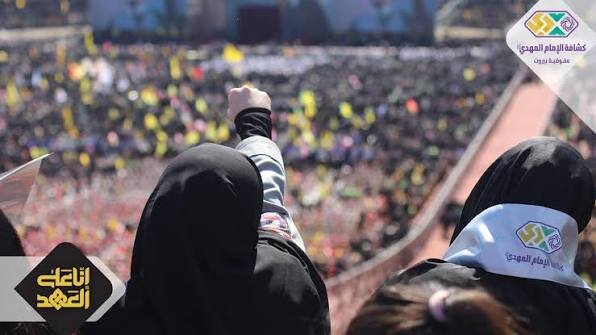Imam Mahdi scouts: A model of construction and resistance in a time of political impotence

BEIRUT—Beirut is preparing to host the largest scout gathering in Lebanon’s history, marking the fortieth anniversary of the founding of Hezbollah’s Imam Mahdi Scouts Association, amid the martyrdom anniversary of Hezbollah secretaries-general, Sayyed Hassan Nasrallah and Hashem Safieddine.
Amidst this, a stark contrast appears between the vitality of the Resistance civil society and the state’s political inability to fulfill its most basic duties.
In Beirut’s Sports City—where preparations began weeks ago—the association has made impressive logistical and organizational efforts such as: a comprehensive cleaning of the stands, halls, and courtyards, maintenance and lighting of the facilities, and the installation of electrical wiring to provide lighting via special generators, with a promise to leave these permanent installations for the facility to use later.
The cost of this voluntary effort amounted to approximately $20,000, a step that reflects the spirit of initiative within the resistance community and restores life to one of the capital’s most important landmarks, which Nawaf Salam’s government has systematically neglected.
This is not the first time Hezbollah has contributed to such projects. It was a pioneer in rehabilitating the playground before the funerals of martyrs Sayyed Nasrallah and Safi al-Din at a cost of approximately $28,000.
This voluntary activity embodies the association’s philosophy since its founding in 1985, when it transformed from a fledgling scouting experiment into a major educational and social institution with more than 76,000 members.
The Imam Mahdi Scouts built their project on preparing individuals above all else. For them, resistance begins with educating the soul, building awareness, and instilling the values of public service and sincere belonging to one’s homeland.
The association has developed its curricula to include, in addition to religious, cultural, political, and sports programs, modern fields such as “The art of negotiation” and “artificial intelligence,” emphasizing that its members are also a generation of knowledge, reason, and openness.
Since assuming office, martyr Sayyid Hashim Safi al-Din (R) paid special attention to the Imam Mahdi Scouts Association, viewing it as an educational school for building a generation of faithful, resistant individuals who would carry the banner of Vilayat-el-Fakih (rule of supreme jurisprudent).
His support was not merely superficial, but rather meticulous and organizational follow-up, leaving an everlasting mark.
Despite this constructive role, the association has not been spared from media smear campaigns that have attempted for years to portray it as a closed military organization, simply because it graduates young people who embody the spirit of resistance and commitment.
These campaigns, led by the anti–Resistance team, fear a scouting model that redefines citizenship based on awareness and responsibility, rather than dependency or a moral vacuum.
Meanwhile, the Lebanese political scene is deteriorating further, as reflected in the heated debate between Speaker Nabih Berri and Prime Minister Nawaf Salam.
Berri accused the government of failing to assist the people of the South and Bekaa affected by the Israeli aggression, hinting that the budget would not be approved unless it included provisions for reconstruction.
Berri denounced the state’s disregard for the destroyed villages, asking: “Is it conceivable that the government would not say ‘welcome’ to the people of Aita al-Shaab, Kfar Kila, Houla, Yarin, Marouhin, Dahra, Mays al-Jabal, Blida, Khiyam, Yaroun, and Maroun al-Ras?”
For his part, lawmaker Ali Fayyad, who is allied to the Resistance bloc in the parliament, pointed out that the state is not exerting sufficient diplomatic and political efforts to confront the Israeli aggression, nor is it mobilizing its resources as it should to defend Lebanese sovereignty.
Here lies the great paradox: While the government is absent from the south and faltering in reconstruction, the Imam Mahdi Scouts are busy restoring Sports City and preparing a promising generation.
The Imam Mahdi Scouts Association today is more than just a scouting movement; it represents a distinguished model of construction when corrupt politicians fail, and a voice for educational resistance that produces elites in various fields.
Leave a Comment